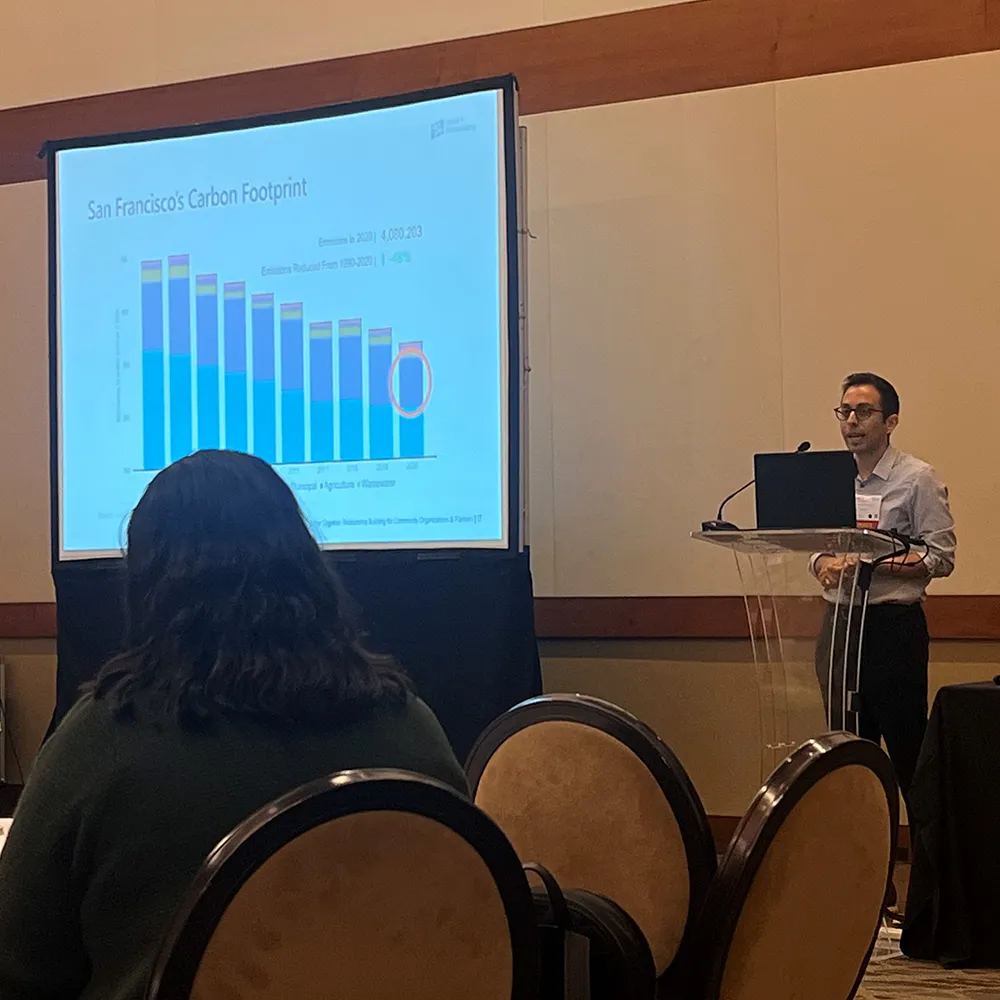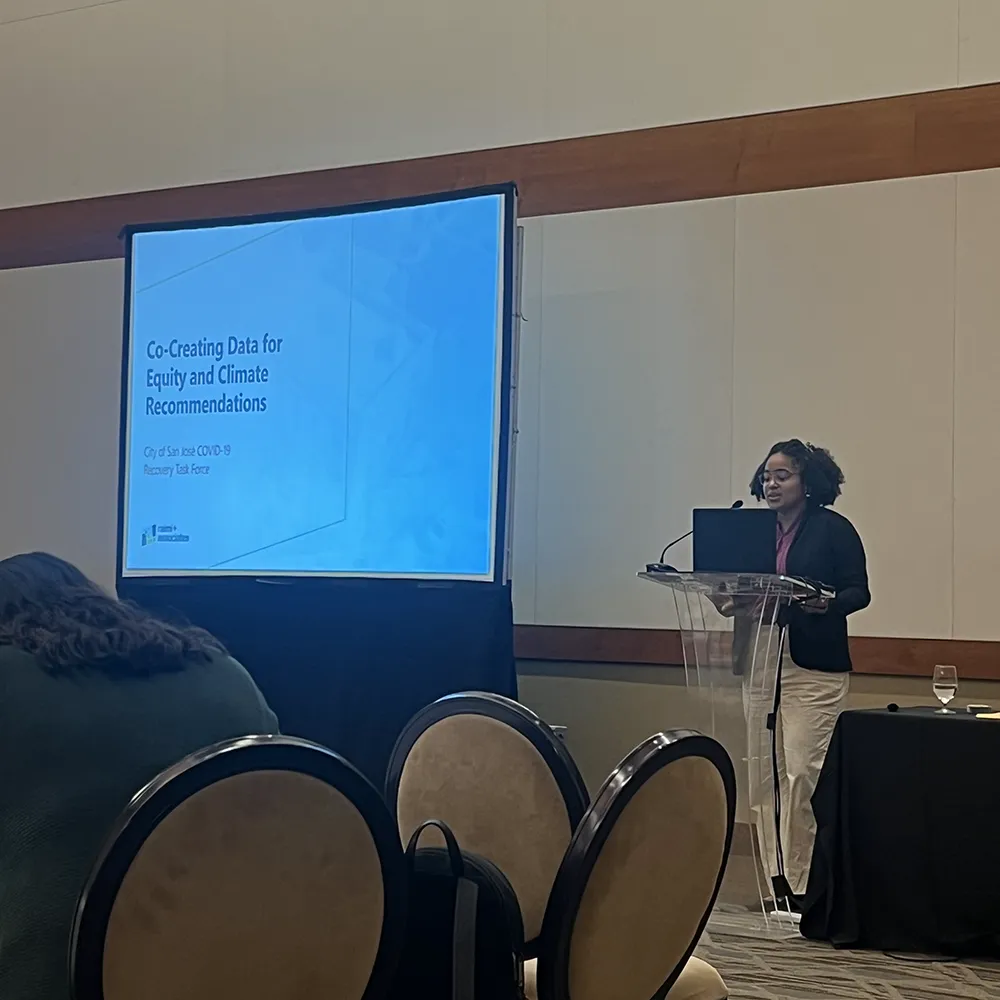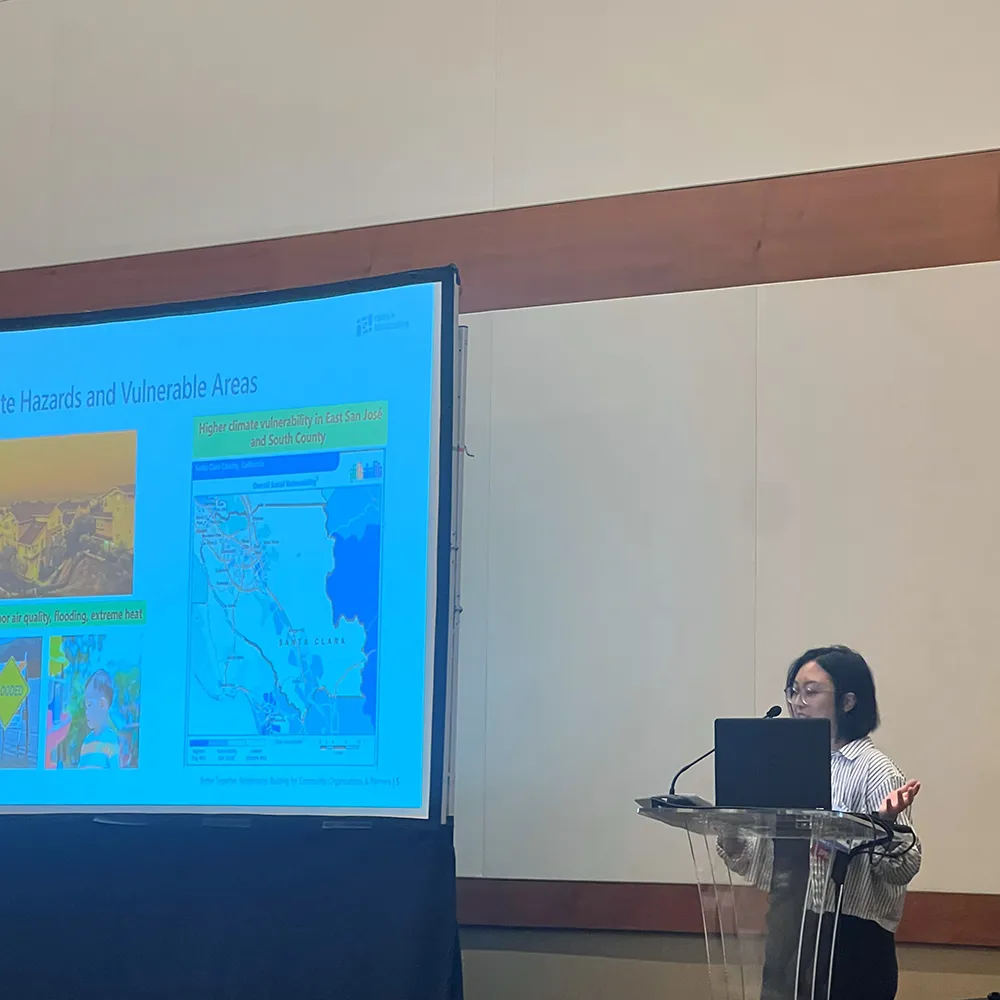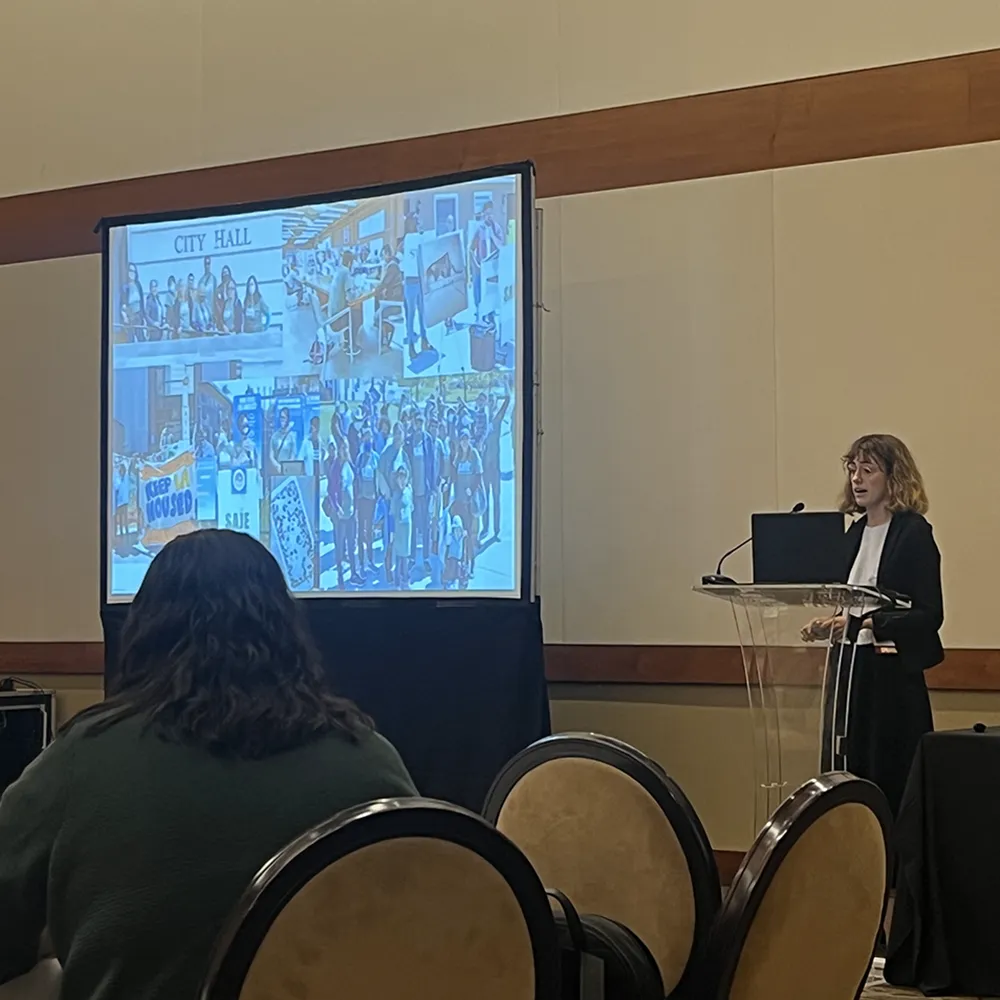
Raimi + Associates (R+A) facilitated a session, “Better Together: Relationship Building for Community Organizations & Planners”, at the 2023 California Adaptation Forum in Pomona, CA.
As jurisdictions work to implement their climate mitigation and adaptation measures, R+A found that there is a critical need to increase collaboration between public agencies and community-based organizations (CBOs), especially CBOs whose primary missions do not explicitly cover climate change but are active in housing justice, social services, and public health.
In partnership with Strategic Actions for a Just Economy (SAJE), a tenant rights organization based in South LA, R+A facilitated a two-part session at CAF: 1) a set of mini-presentations to introduce conference attendees to collaborative cross-sector models for climate action and 2) a structured networking activity to encourage cross-sector relationship building among conference attendees. The session attracted over 70 attendees—one of the conference’s most highly attended breakout sessions.
Part 1
R+A and SAJE provided mini presentations on past projects that covered collaborative cross-sector models between CBOs and public agencies to collectively advancing climate change-related policies and programming, such as co-creating climate trainings and community-led research.
These mini-presentations were intended to help conference attendees in generating ideas on how to strengthen cross-sector collaboration in their own work and with establishing new processes that respectfully integrate the expertise of CBOs to create more equitable climate policies and programs. Below is a list of some of the major lessons learned and best practices in collaborative cross-sector models from R+A and SAJE’s past work.
Allocate resources to CBOs to fairly compensate for their contributions.
Offer as much advanced notice as possible - avoid rushing the RFP process.
Offer long-term contracts.
Create open lines of communication between public agencies and CBOs to incorporate feedback into operating processes and improve working relationships.
Be respectful of partners’ time and use meetings strategically.
Gather community input at every stage of the process and build community trust by collectively responding to residents’ needs and concerns.
Elevate joy in climate programming to achieve a collaborative’s goals more effectively.
Proactively set-up transition plans so that collaborative work can continue smoothly in the event a key staff member transitions out.
Part 2
R+A facilitated a dynamic structured networking session focused on expanding relationships between CBOs, public and private sector planners, and other stakeholders to broaden the network of adaptation leaders and catalyze individual action. We specifically aimed to build connections between planners and CBOs whose primary missions do not explicitly cover climate change.
Participants were highly engaged in the structured networking session and especially appreciated the opportunity to meet other conference attendees.

Based on our experience leading both sessions and the audience’s energy and interest, R+A has an opportunity to continue to share learnings and partner with key stakeholders to advance environmental justice and health equity in planning.
If you’d like to get in touch with us about this work, please contact us at marketing@raimiassociates.com.




